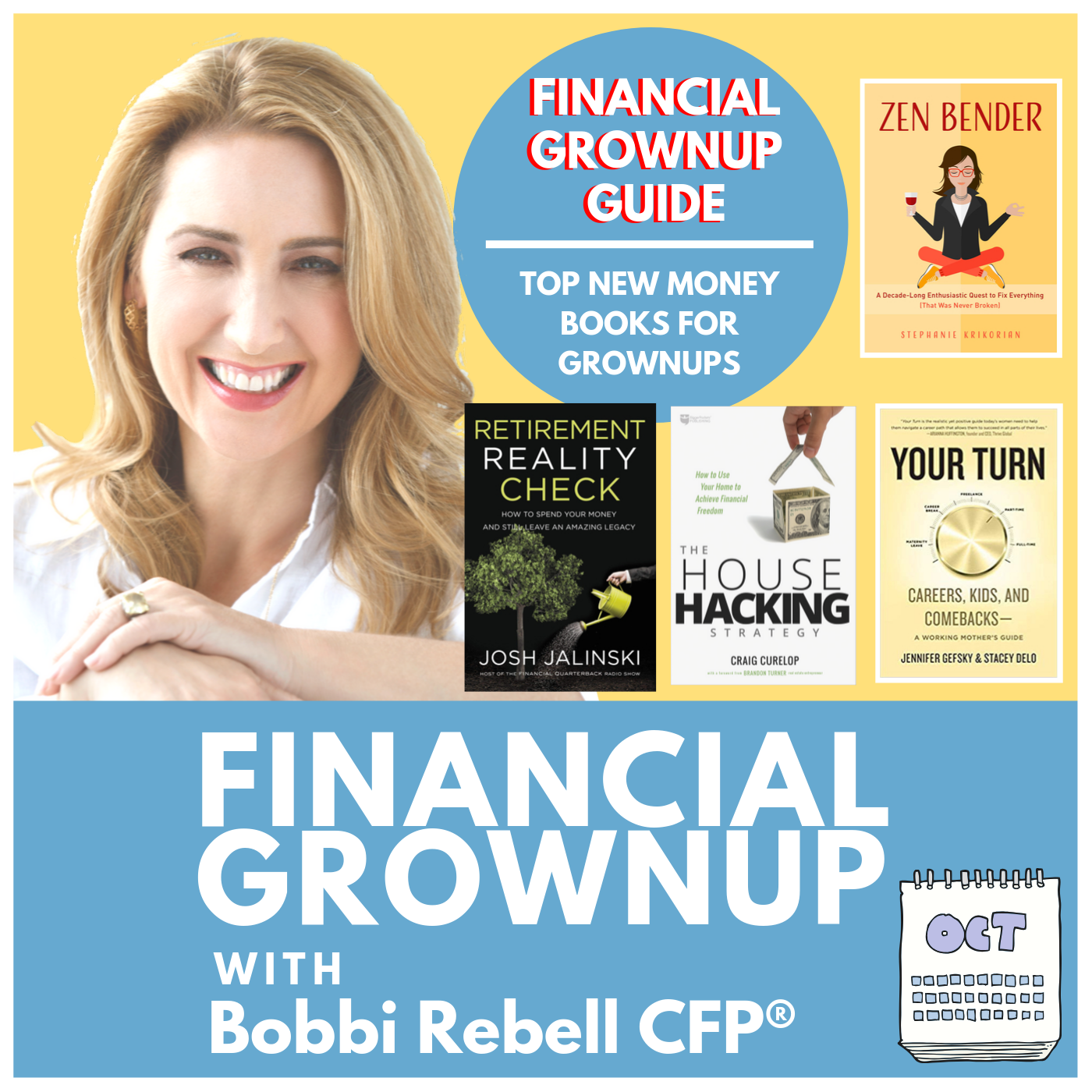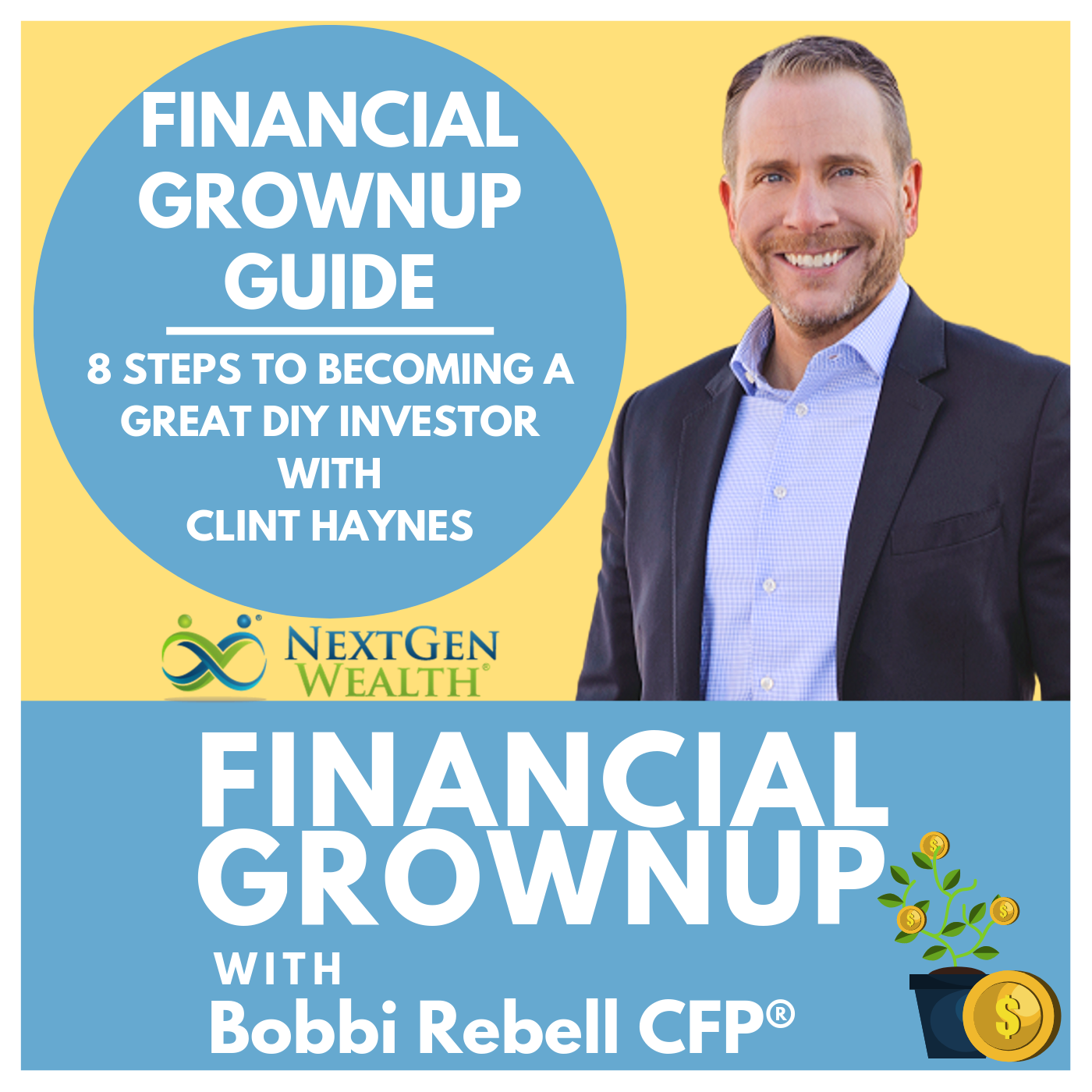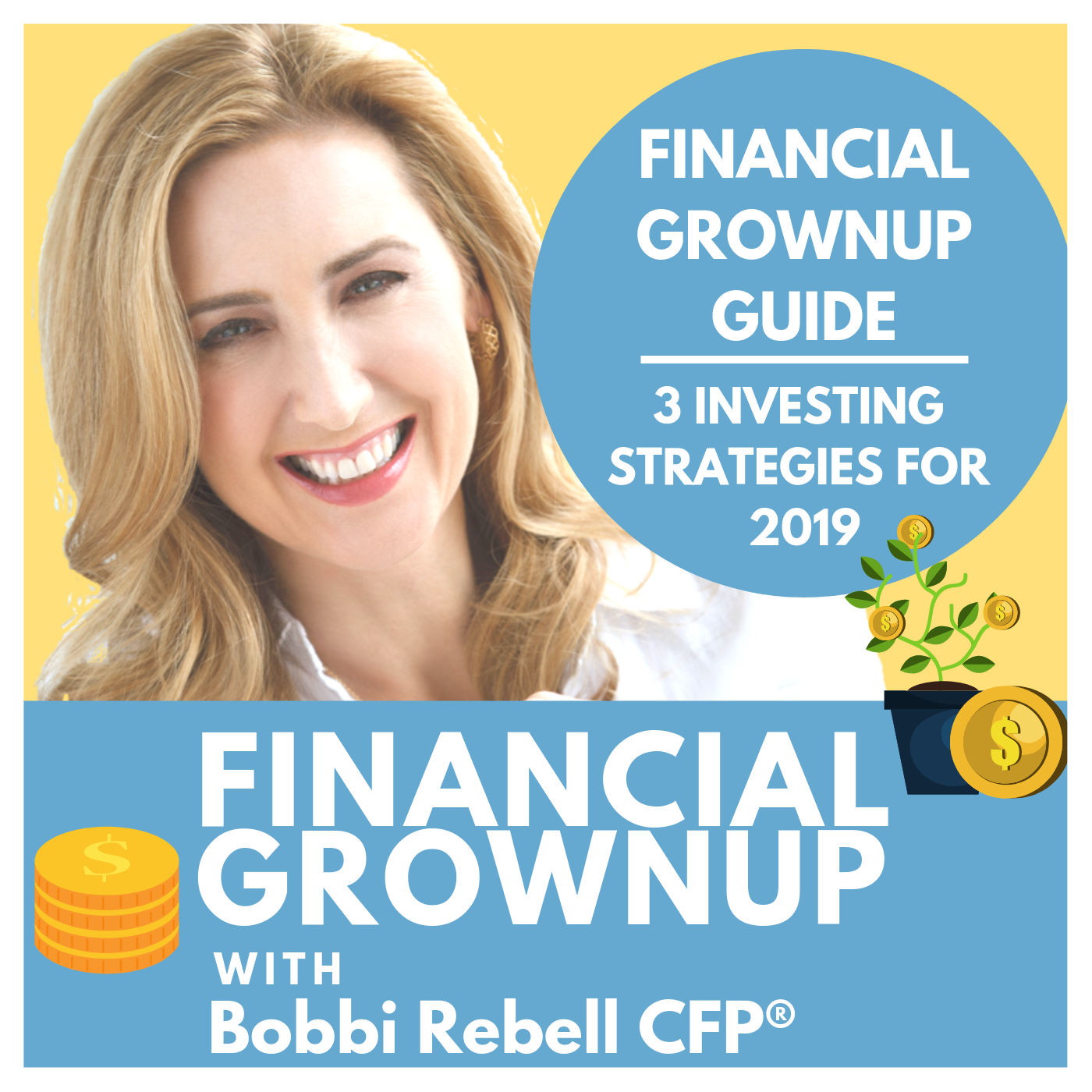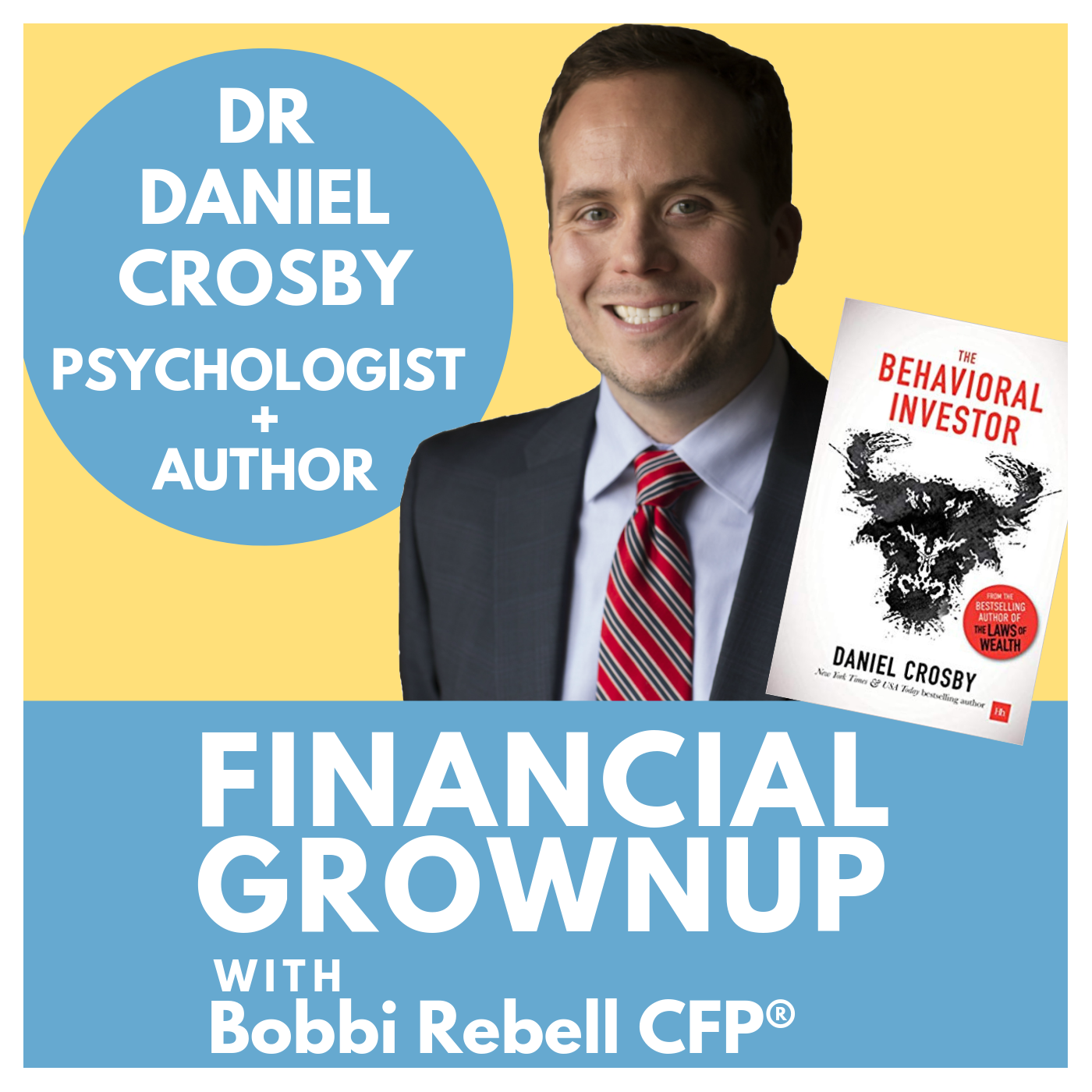Transcription
Andy Wang:
One day, I was driving to work and my phone rang. I answered, and the person said, "This is Christie Brinkley's office calling. Are you available to play a private event?" So long story short, I played a small, intimate event for Christie and about 10 of her friends and family. It was a crazy night.
Bobbi Rebell:
You're listening to Financial Grownup with me, Certified Financial Planner, Bobbi Rebell, author of How to Be a Financial Grownup. But you know what? Being a grownup is really hard, especially when it comes to money. But it's okay, we're going to get there together. I'm going to bring you one money story from a financial grownup, one lesson, and then, my take on how you can make it your own. We got this.
Bobbi Rebell:
Hey, friends. So I don't know about you, but I'm pretty happy just kind of staying in my comfort zone. But let's be real: It gets boring and staying still is also not usually a really good business plan or career advancement strategy. So we're all in for a year with this guest coming up. But first, a quick welcome to anyone new that is joining us for the first time. You're going to notice the episodes are relatively short, especially compared to other money, business, entrepreneur-focused shows out there. It's done very much on purpose. We're going for about 15 minutes, give or take. The idea is that, you can listen between things, when you have a sliver of free time, and walk away feeling like you learned something of value, and hopefully, smiled a bit, too. But we also know, a lot of our listeners like to binge on a few episodes at a time, so if you're commuting or running errands or something that takes a little bit longer, you can listen to two, three, four episodes and get an hour of content. So we just want to be flexible and work with you. And of course, welcome back to our regular listeners. Thank you. If you have not hit Subscribe, please do so, so you don't miss any upcoming episodes, and there are some really amazing ones coming up. So I'm exciting to share them with all of you.
Bobbi Rebell:
Okay, now to Andrew Wang. He's an Investment Advisor at Runnymede Capital. But you may know him as the host of the Inspired Money Podcast, or he may have been the entertainment at a party you went to. Really. Listen. Here is Andy Wang.
Bobbi Rebell:
Andy Wang, you are a Financial Grownup. Welcome to the podcast.
Andy Wang:
Thank you so much, Bobbi. I can't believe that I'm here.
Bobbi Rebell:
Finally. I know, I've been trying to get you on for a while. You're very busy, you're the host of the Inspired Money Podcast. You also have your own company, Runnymede Capital Management, the only, thank you very much. And you are acclaimed as an advisor and an influencer, so much so, that you are on the Investopedia 100 Most Influential Advisors. So this is an honor, Andy.
Andy Wang:
The honor is mine. I'm still trying to convince all of my coworkers that when I'm on Facebook, that I'm working.
Bobbi Rebell:
You're always working, Andy, even when you're having fun, and even when you're doing your hobbies, one of which involves getting over your fears, learning new skills, and even meeting some celebrities. Tell us your money story.
Andy Wang:
Yeah. It goes back through, you and I have talked about this before, "How can we do so many things?" We all have to-do lists that are a mile long. It's important for us to find and make time for family, hobbies, and to decompress. So my Financial Grownup story is about doing something that scares you. It takes me back to when I was in high school. Remember the days when there were music videos on MTV?
Bobbi Rebell:
I do.
Andy Wang:
I always wanted to learn guitar, so the summer after graduation, I mentioned this to my dad. And without hesitation, he replied, "Well, go for it. Don't just think about it." So that was great advice. I took four lessons, and I never aspired to play in front of everybody. I had the worst stage fright. If I had to perform in front of a group, my hands got clammy, they shook. I literally got a stomachache. So years later, because my wife was born and raised in Hawaii, and over many trips back there, I fell in love with Hawaiian music and the Hawaiian culture. So there just aren't that many people in the New York Area who play Hawaiian slack key guitar.
Bobbi Rebell:
What is Hawaiian slack key guitar? Just so we know.
Andy Wang:
Hawaiian slack key guitar is a folk tradition that was born in Hawaii in the late 1800s. The legend is this: The locals didn't know how to tune the guitars, so they slacked or loosened the strings to suit their vocal range and their music. So I slacked my guitar strings, and I would get invited to play at weddings, parties, corporate events. And I had to get over my fear.
Bobbi Rebell:
So you got over your fear, and you started playing. And what's interesting is, this led to a bunch of different things. It led to celebrities, it led to new business. Tell us more.
Andy Wang:
Yeah. One day, I was driving to work and my phone rang. Even though I didn't recognize the number, I answered, and the person said, "This is Christie Brinkley's office calling. Are you available to play a private event?" So long story short, I played a small, intimate event for Christie and about 10 of her friends and family. She invited me to join them for dinner afterwards. She's just a super, super-nice person. It was a crazy night. The financial takeaway, I think is this: Our personal networks and connections that we make to people, that benefits our business, or benefits the work that I do. And when people can see me out of context: not wearing a tie, not being in my office, they see me wearing an aloha shirt, playing guitar with my family, it enables me to make those human connections, and meet all kinds of interesting people. After all, music is a language.
Bobbi Rebell:
And it's not about business that day. It's about starting the relationships that eventually, some of them, or maybe friends of theirs, or acquaintance of theirs, become your clients, in a very holistic way.
Andy Wang:
That's exactly right. It's about making friends. And just meeting people, and making those connections.
Bobbi Rebell:
And tell us, for our listeners, what is the takeaway for them? How can they apply this to their own lives, and to their own finances?
Andy Wang:
Well, my avocation has taught me that we can live richer lives by forcing ourselves past our comfort zones. Whether it's learning an instrument, starting a podcast, investing your 401(k), sometimes it's as simple as just opening up and reviewing your financial statements. I mean, we always hear the stories that, in a bear market, people don't want to even look at their financial statement. So pushing yourself to do things that scares you can really lead to magic happening. Tina Fey has a quote that I love, and it's, "The fun is always on the other side of yes." Surveys of millionaires support this, too, because there's a common characteristic that millionaires share. And that's having an openness to take on new experience and try new things. If your boss asks you to take on a new project or to lead a team, the answer should be, "Yes."
Bobbi Rebell:
Do you think that people that try new things, I'm kind of stating the obvious. But I guess, why is it that people who try new things are, in your mind, more successful?
Andy Wang:
Having a willingness to try new things, it's like, they say, "Fake it until you make it." You have to be open to new opportunities. Sometimes, these are opportunities that you would even imagine yourself doing. But by saying yes and to committing to it, that's how you're going to learn. I mean, that's how we all learn.
Bobbi Rebell:
Okay. But let's go to your everyday money tip, because it's kind of the reverse of commitment, and committing to your ideas. It's also kind of being okay taking a more, I don't know, kind of stepping back a little and being okay with being, maybe wrong sometimes?
Andy Wang:
Yes. My money tip: We all make mistakes, and when you're investing, my money tip is to cut your losses. I took this simple rule from a successful hedge fund manager. Too often, people let losers ride, in hope that they'll come back. We all have those dogs in our portfolio. And the reality is that, losses have a tendency to grow. It's almost like a disease or cancer in our portfolios. So if you really life something and want to be a long-term owner, be willing to enter, exit, and re-enter again if necessary. The fund manager who taught me this, he's willing to buy and sell a position, five, six, seven times. So if you cut losses, let the winners ride, you'll set yourself up for long-term gains, and lessen your term pain.
Bobbi Rebell:
So just to pull something out of there. So what you're saying is, if you still believe in a stock and it's going down, that doesn't mean you have to ride it to the very bottom. You could sell it, take some loss, and then re-buy it at a lower level. It doesn't mean you don't still believe in the company necessarily, you're just not okay with the price, where it's going in the short term. Is that where you're getting at?
Andy Wang:
Correct. The whole idea is that, if you pick a company that you love, you may not know the precise timing that's going to make sense, like, the optimal time to buy it. So you have to be willing to buy it, but then, set a limit, so that, if it goes down and it's not working in your favor, that you have to be willing to cut it. And you may come back and re-purchase that stock, but you just, you want to eliminate the potential for losses to grow into bigger losses. And then, you're stuck, because you're kind of handcuffed, because then you're not sure: Should you wait, or should you not?
Bobbi Rebell:
And specifically, what are some tactics that people can use to actually do this?
Andy Wang:
Well, my advice is that, people should pay like, pick a number. Pick a number that you're willing to stomach. Sometimes, that could be, if it goes down 5 percent, if it goes down 10 percent, and then, in your brokerage account, you could set up a stop loss order to automatically trigger if the stock hits that level.
Bobbi Rebell:
In order words, you're automating it and taking the emotion out of it.
Andy Wang:
That's correct. You can set it up so that this could be happening while you're taking a nap somewhere, or even if you're on the beach: If the stock goes down 5 percent, 10 percent, whatever your limit is, you're controlling the amount of loss that you're willing to let that get to.
Bobbi Rebell:
All right. Thank you so much, Andy. So tell us more about what's going on at Inspired Money. Tell us about, we haven't actually talked much about it, because the title is actually very meaningful to what you talk about.
Andy Wang:
Yeah, someone told me recently that money is not something that they associated with inspiration. So on the Inspired Money Podcast, we really try to explore money conversations with successful people on how to be more purposeful, more intentional, and make your money more meaningful. And I'm having a lot of fun with it, because I'm talking to such a diverse group of people, ranging from entrepreneurs to those in non-profit. I've talked to actors, I've talked to screenwriters, musicians. I mean, we all have to live and deal with money.
Bobbi Rebell:
Well, I'm waiting for the Christie Brinkley episode, so that'll be one to watch. Right?
Andy Wang:
My fingers and toes are crossed, Bobbi.
Bobbi Rebell:
All right. Tell us where everyone can find you.
Andy Wang:
And thanks so much. Listeners can find me at Runnymede.com or @RunnymedeCap on Twitter. That's R-U-N-N-Y-M-E-D-E. We help people to plan for retirement, protect and grow their investments. We also help business owners to set up and manage their company 401(k) plans. And then, for Inspired Money, you can find me at InspiredMoney.fm, or wherever you listen to podcasts.
Bobbi Rebell:
Love it. Thank you so much, Andy. I really appreciate you coming on.
Andy Wang:
Thank you, Bobbi.
Bobbi Rebell:
Love that advice from Andy, my friends: Take the emotion out. So let's talk about that. Financial Grownup Tip number 1: We automate lots of things, just like Andy suggested. Stock sales is one example. Paying bills is another thing. But it's just good to automate things that we don't always make rational decisions about. So in addition to stocks and bill paying and those kind of things that we think about automating, I'm going to go to something that is non-financial, but that does have financial consequences if we don't pay attention to it. And that is sleep, and getting a good night's sleep. You know what we can all do, to get a better good night's sleep? Set a sleep timer on your media. It can be the television and yes, you can put your phone or your computer on a timer as well, to go into sleep mode. In fact, there's tons of apps to even measure the quality of your sleep.
Bobbi Rebell:
But I think the most important thing is to not be actively using the actual devices. And sometimes, it's really hard to do that. So set a sleep time. Think about how many nights we intend to watch just one TV show, one half-an-hour TV show, and you know they all go rolling right into the next show. So it's really hard to do that. Or we say we're going to check our social media for a limited time, and then, you look up at the clock, if you even do look up at the clock. And then, "Oh, my gosh, it's past midnight." So let's automate that, so that it goes off. And try to not turn it back on when it goes off, kind of like the snooze alarm in the morning. Just, when it goes off, let it go off. We know that if we get more and better-quality sleep, we're going to function better. We're going to perform better at work, at our jobs, with our businesses. And in the end, that will result in a better chance at hiring profits and more success. So let's do it.
Bobbi Rebell:
Financial Grownup Tip number 2: Andy quoted Tina Fey as saying, "The fun, it's always on the other side of yes." And I would add, "The profit is on the other side of yes." Come from a place of "Yes." Don't forget to have fun. Keep an eye, though, on where the profit can be. If you say "No," there is zero chance of fun and zero chance of profit. Andy not only has a great side hustle from this skill playing Hawaiian slack key guitar, go Google it. After this is over, you can learn even more. He meets celebrities like Christie Brinkley, one-on-one. Super fun. And to be sure, he gets new business in an authentic way that bonds him to clients and makes them more likely to stay with him long-term, because they see what a great guy he is. They see him in a different context from just meeting him behind a desk in the office or through phone calls, or through other ways of communication, emails and all that stuff.
Bobbi Rebell:
All right, love hearing from all of you. Keep sharing our promo videos on social media for a chance to win one for your business, or just for you. And please rate and review Financial Grownup on Apple Podcasts, and of course, hit the Subscribe button, to make sure you don't meet any upcoming episodes. And tell your friends if you like it. We really love that the show is growing, and want to keep it that way. So make sure to tell everyone that you think would enjoy Financial Grownup. You can follow me @BobbiRebell on Twitter. Instagram, BobbiRebell1. Facebook, I am at Bobbi Rebell. And of course, you can also go to my website, BobbiRebell.com/financialgrownuppodcast, and sign up for our newsletter.
Bobbi Rebell:
Andy is a true Financial Grownup, blending all that he loves together: family, friends, music, and his business. He is a great role model, so thank you, Andy for bringing us all one step closer to being Financial Grownups.
Bobbi Rebell:
Financial Grownup with Bobbi Rebell is edited and produced by Steve Stewart, and is a BRK Media Production.










































